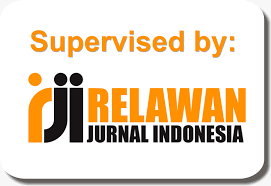Differentiated Learning Approach for Improving Report Text Learning Outcomes for Tenth Graders
DOI:
https://doi.org/10.52333/djoee.v4i2.186Keywords:
differentiated approach, learning outcomes , report textAbstract
The use of differentiated learning approaches to learning has become a trend in the MERDEKA Curriculum. This study aimed to improve English learning outcomes of report text through the differentiated learning approach based on students' readiness. This study utilized Classroom Action Research conducted in class XB at SMAN 4 Palembang with 34 students. Data for this research were obtained from tests, observations, tasks, and documentation. The data were analyzed qualitatively and quantitatively. Qualitative analysis involved data processing, reading, classifying, and interpreting, while quantitative data were analyzed using percentage analysis. This study consisted of two cycles, starting with the pre-cycle. Initially, 12 students (35.3%) passed, while 22 students (64.7%) did not reach the Minimum Learning Mastery Standard (KKM) with an average score of 63.82. After Cycle I, the number of students who successfully completed the tasks increased to 15 (44.1%), with 19 students (55.9%) not reaching the target, and the average score improved to 71.17. In Cycle II, a significant improvement was observed, with 33 students (97%) reaching the KKM, and only 1 student (3%) did not pass, resulting in an average score of 89.11. The differentiated learning approach effectively enhances English learning outcomes. Teachers should employ differentiated learning for enhanced results and create engaging classrooms.
References
Arikunto, S., Suhardjono, & Supardi. (2010). Penelitian tindakan kelas. Jakarta: Bumi Aksara.
Chen, J., Moran, S., & Gardner, H. (2009). Multiple Intelligences around the World. United Kingdom, Wiley, https://www.google.co.id/books/edition/Multiple_Intelligences_Around_the_World/C-5bI3Kk46QC?hl=en&gbpv=1, diunduh 28 Juli 2023.
Fitra, D. K., (2022). Pembelajaran berdiferensiasi dalam perspektif progresivisme pada mata pelajaran bahasa inggris. Jurnal Filsafat Indonesia, 5(3).
Grix, J. & Phillpots, L. (2014). Understanding UK sport policy in context. United States of America, Taylor and Francis Books, https://www.google.co.id/books/edition/Understanding_UK_Sport_Policy_in_Context/bTMrDwAAQBAJ?hl=en&gbpv=1&dq=Self-Determination+Theory+by+Deci+and+Ryan+highlights&pg=PA86&printsec=frontcover, diunduh 28 Juli 2023.
Handayani, S. (2016). Pentingnya kemampuan berbahasa inggris sebagai dalam menyongsong ASEAN. Jurnal Profesi Pendidik, 3(1), 102-106.
Huang, R., Kinshuk, & Chen, N. S. (2014). The new development of technology enhanced learning. New York, Springer https://www.google.co.id/books/edition/The_New_Development_of_Technology_Enhanc/ZWAlBAAAQBAJ?hl=en&gbpv=1&kptab=getbook, diunduh 28 Juli 2023.
Laia, I. S. A., Sitorus, P., Surbakti, M., Simanullang, E. K., Tumanggor, R. M., & Silaban, B. (2022). Pengaruh strategi pembelajaran berdiferensiasi terhadap hasil belajar peserta didik SMA Negeri 1 Lahusa. Jurnal Ilmiah Wahana Pendidikan, 8(20), 314-321. DOI: https://doi.org/10.5281/zenodo.7242959.
Margono, S. (2010). Metodologi penelitian pendidikan. Jakarta, Rineka Cipta, http://www.digilib.unipdu.ac.id/beranda/index.php?p=show_detail&id=5092, diunduh 9 Juni 2023.
Mu’alimin. (2014). Penelitian tindakan kelas: Teori dan praktik. Jember: Ganding Pustaka.
Nesmith, R. (2023). An educational primer for new teachers. United States, U.S., https://www.google.co.id/books/edition/An_Educational_Primer_for_New_Teachers_L/Aba1EAAAQBAJ?hl=en&gbpv=1&dq=Bandura%27s+social+learning+theory+emphasizes+the+role+of+observational+learning+and+self-efficacy+in+shaping+students%27+behavior&pg=PA119&printsec=frontcover, diunduh 28 Juli 2023
Purba, M., Purnamasari, N., Soetantyo, S., Suwarna, I. R., & Susanti, E. I. (2021). Naskah akademik prinsip pengembangan pembelajaran berdiferensiasi (differentiated instruction) pada kurikulum fleksibel sebagai wujud merdeka belajar. Jakarta: Pusat Kurikulum dan Pembelajaran, Badan Standar, Kurikulum, dan Asesmen Pendidikan, Kementerian Pendidikan, Kebudayaan, Riset, dan Teknologi, Republik Indonesia.
Rusman, A. (2020). Classroom action research: Pengembangan kompetensi guru. Jawa Tengah: CV. Pena Persada.
Slameto. (2010). Belajar dan faktor-faktor yang mempengaruhinya. Jakarta: PT. Rineka Cipta.
Sugiyono (2019). Metode penelitian kuantitatif, kualitatif, dan R&D. Bandung, Alphabet, https://www.scribd.com/document/391327717/Buku-Metode-Penelitian-Sugiyono, diunduh 9 Juni 2023.
Surbakti, M. & Panjaitan, P. (2020). peningkatan kualitas pembelajaran biologi dengan metode kooperatif di prodi pend. fisika FKIP UHN Medan. Jurnal Visi Eksakta, 1(1), 63–78.
Downloads
Published
How to Cite
Issue
Section
License
Copyright (c) 2023 Yossi Stefani

This work is licensed under a Creative Commons Attribution-NonCommercial-ShareAlike 4.0 International License.







